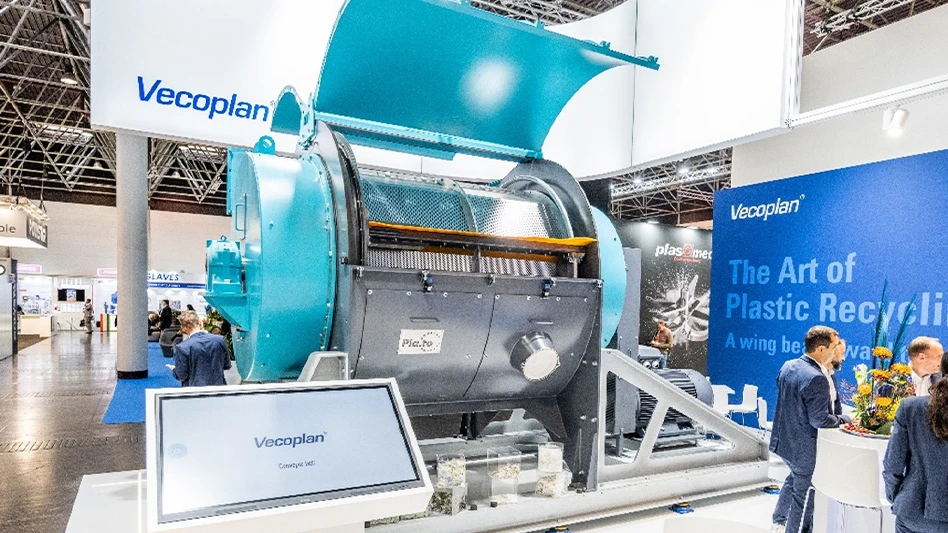According to a report recently released by the National Resources Defense Council (NRDC), recycling will become more cost-effective than trash disposal, leading to big savings in New York City’s overall sanitation expenses.
"This study confirms that Mayor Bloomberg’s and the city council’s decision to restore full recycling four years ago was not only good for the environment, but also good for the city’s bottom line," Eric Goldstein, New York urban program director for the NRDC, which commissioned the study, says. "This report also shows that as trash export fees continue to escalate, expanded recycling here will further lower the city’s skyrocketing sanitation costs."
The study reveals that the cost of recycling and trash disposal are nearly equal in New York City today and that in no more than five to six years, recycling will be a benefit to the city in controlling the mounting expense of landfilling trash.
DSM Environmental Services Inc. completed the three-year study, which finds that after recycling was brought back to New York City, there was only a slight difference in cost between curbside recycling and curbside trash collection. The data also show that as costs to transport waste out of state continue to rise and worldwide recycling markets continue to strengthen, the city’s curbside recycling program will become less expensive than trash disposal and will reduce the Department of Sanitation’s overall operating costs within the next five to six years.
Moreover, the study notes that recycling costs will drop even further as more residents participate in the recycling program and collection rates increase, as the price per ton to collect material decreases. Currently, sanitation crews collect fewer recyclables per shift than trash, resulting in a marginally higher cost per ton for collecting recyclables.
Additionally, the report found that the overall costs of processing the city’s recyclables at local recycling plants is significantly less than the cost of processing trash, which includes additional transportation costs and high fees for out-of-state incineration and landfilling.
The report also says the city’s carbon dioxide emissions were reduced by 500,000 metric tons in 2005 through recycling.
The report is available at http://docs.nrdc.org/cities/cit_08052801A.pdf.
Connecticut Resources Recovery Authority Converts Hartford MRF to Single-StreamThe board of directors for the Connecticut Resources Recovery Authority (CRRA) has approved $3 million to retrofit its regional recycling facility in Hartford, Conn., to process single-stream recyclables. The change will affect recycling services to all 70 cities and towns served by CRRA’s Mid-Connecticut Project.
"In many other cities, single-stream has dramatically improved recycling rates. We believe this is the future of recycling," Thomas Kirk, CRRA president, says. "The state has set some aggressive goals for recycling, and single-stream is the kind of bold step we need to take to reach those goals."
Further, CRRA will offer rebates to Mid-Connecticut Project towns of $10 for every ton of recyclables they deliver.
According to CRRA, if the recycling levels increase by 50 percent, the agency will receive an additional $5.38 million in revenue throughout the next 10 years, meaning the retrofit will more than pay for itself.
"For many months, towns and private haulers have been urging us to go single stream," Thomas Gaffey, CRRA’s head of recycling, says. "The towns like it because more recycling means they get a bigger rebate check and a smaller trash bill. And haulers—both the private companies and municipal fleets—like it because they can automate their collections, driving down their costs and fuel consumption and making their routes more efficient."
CRRA says it expects to complete the MRF retrofit and be able to accept single-stream deliveries by the end of this year.
Towns and haulers that do not want to switch to the single-stream collection method will still be able to make dual-stream deliveries to the facility following its conversion, according to the agency.
CRRA also is working with the city of Hartford on a pilot project that will bring single-stream recycling to almost 5,000 homes in the city. The National Recycling Partnership is funding the pilot project and includes the National Recycling Coalition; FCR Inc., which operates CRRA’s recycling facilities in Hartford and Stratford, Conn.; RecycleBank, which provides coupons to participants based on the volume of recyclables they divert; the Food Marketing Institute; the American Beverage Association; the Association of Food, Beverage and Consumer Products Companies; and the International Bottled Water Association.

Explore the July 2008 Issue
Check out more from this issue and find your next story to read.
Latest from Recycling Today
- Equipment from the former Alton Steel to be auctioned
- Novelis resumes operations in Greensboro, Georgia
- Interchange 360 to operate alternative collection program under Washington’s RRA
- Waste Pro files brief supporting pause of FMCSA CDL eligibility rule
- Kuraray America receives APR design recognition for EVOH barrier resin
- Tire Industry Project publishes end-of-life tire management guide
- Des Moines project utilizes recycled wind turbine blades
- Charter Next Generation joins US Flexible Film Initiative





